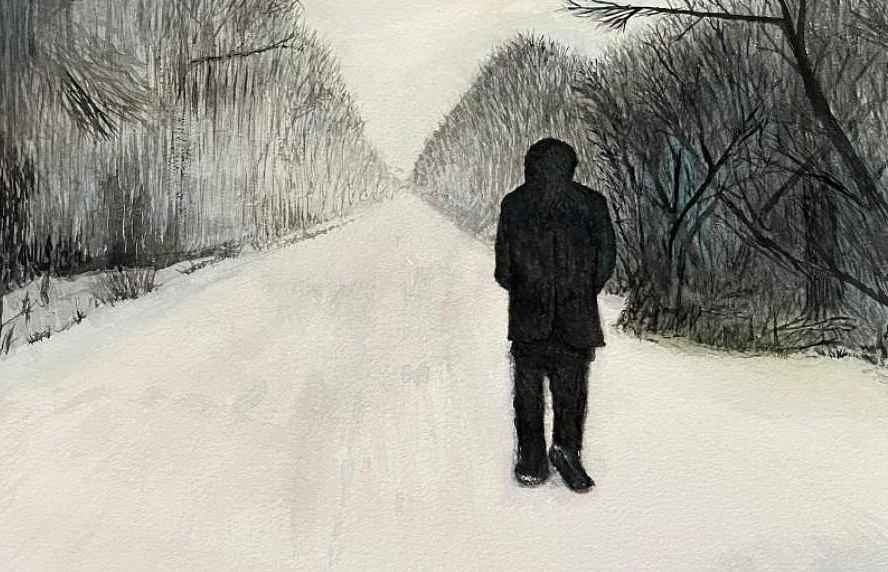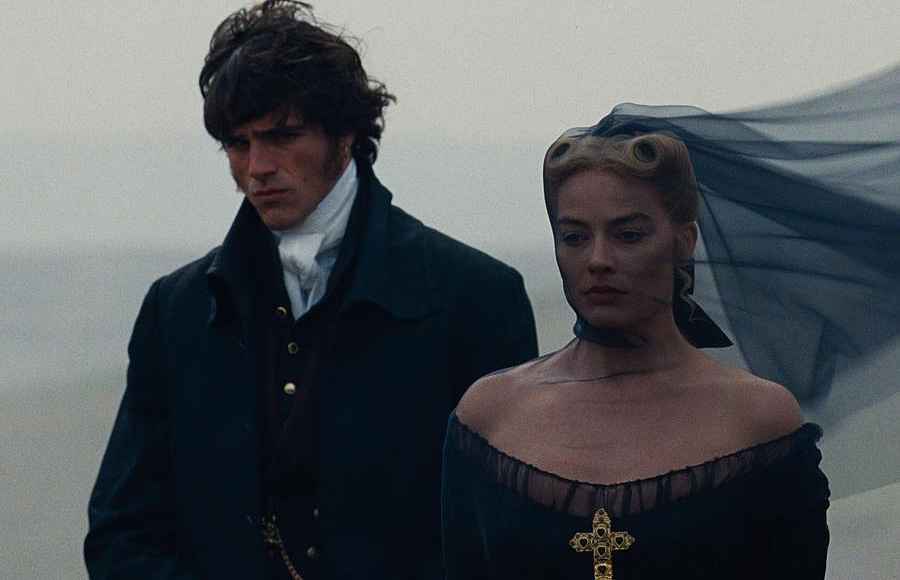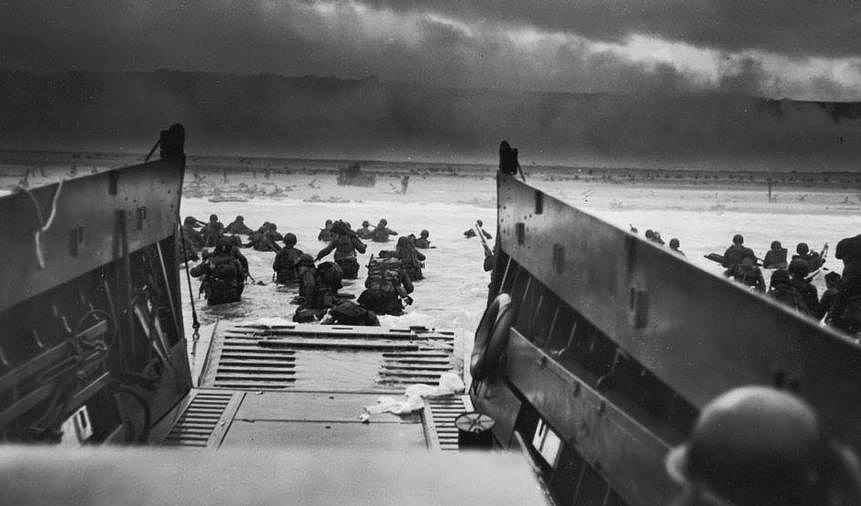






See listing of Recent and Most Popular articles on the Home Page
My World
Category: History / Topics: Circumstances, Life Events • Courage • History • Media • Tribute, Testimony • War • Writing
Remembering the Men Who Went Ashore
Posted: June 15, 2023
My first knowledge of D-Day came from A.J. Liebling's accounts in The New Yorker, which I read as a college kid and reread last week on the anniversary. Reading them the first time made me want to be a writer and the rereading was no less stunning…
I was an infant when Allied forces crossed the Channel and landed at Normandy in 1944 and none of my uncles were there, the only D-Day vet I knew was my high school biology teacher Lyle Bradley who dove into a foxhole under enemy fire and two men fell on top of him, both dead, who shielded him from a nearby mortar explosion, but he never told me about it until he was an old man and so my first knowledge of it came from A.J. Liebling’s accounts in The New Yorker which I read as a college kid and reread last week on the anniversary. Reading them the first time made me want to be a writer and the rereading was no less stunning.
Joe Liebling was a war correspondent aboard a 155-foot landing craft that hit Omaha Beach at dawn and dropped off infantry and advance teams of engineers assigned to clear away mines and obstacles and he stood topside and reported what he saw and heard. He went to a chapel service, a chaplain quoting St. Paul, “If God be for us, who can be against us?” Printed copies of General Eisenhower’s message to the troops were passed out and men autographed them for each other as souvenirs. Liebling had boarded the boat days before and gotten to know the sailors who refer to the amphibious force as “the ambiguous farce” and the troops of the First Division who’ll go ashore — “The First Division is always beefing about something, which adds to its effectiveness as a fighting unit,” he writes. A trooper boards, saying, “Did you ever see a goddamn gangplank set in the right place?”
Liebling wrote that on the crossing, everyone was “in the same mood: everybody hopes he won’t get seasick. On the whole, this is a favorable morale factor. A soldier cannot fret about possible attacks by the Luftwaffe or E-boats while he is preoccupied by himself and the vague fear of secret weapons on the far shore is balanced by the fervent desire to get the far shore under his feet.”
So when the boat slips past the big ships and drops the two landing ramps and the battle is joined, you sort of know the guys who dash forward into five feet of water and struggle toward the beach and the cliff beyond, the German pillboxes firing tracer bullets, the thunder of Allied artillery. He hears a BBC announcer announce that the landing was carried out “with surprising ease.” “I called briefly upon God,” Liebling wrote. “D-Day hadn’t seemed like that to us. There is nothing like a broadcasting studio in London to give a chap perspective.”
The first man ashore is a young coastguardsman from a small town in Mississippi who’ll carry a guideline ashore so the disembarking soldiers will have something to hang onto if they step into a hole. The guy is wearing a swimsuit. He went to Tulane and he wants to become a newspaperman. He says he’s a “pretty good” swimmer. So when you read later that he was hit by a German shell as he stepped off the ramp and was blown apart, you grieve for him.
It was stunning, to be so gripped by writing that had gripped me as a college kid, that I read over and over again. I got to The New Yorker five years after Liebling died in 1964 and I had lunch once with his colleague Joseph Mitchell who remembered Joe sitting in an office down the hall tapping away on a typewriter and stopping to laugh at what he’d written. “He was the only New Yorker writer who enjoyed reading his own stuff,” Mitchell said. “Most of us thought writers were supposed to agonize but Joe loved a good turn of phrase.”
I read the piece in the magazine’s archive, columns of type between ads for cigarettes and Rodgers’ and Hammerstein’s “Oklahoma” and the Crosley automobile and men’s double-breasted suits, and it struck me how far we’ve come from Liebling’s respect for soldiering and his fondness for the democratic spirit of the military, men from Kansas and Bensonhurst and South Dakota coming together, beefing about the chow, the highfalutin manners of the officer corps, putting their lives on the line in defense of Europe.
What came between the beach at Normandy and today was a series of disasters, Vietnam, Iraq, Afghanistan, and when my cousin Ron got to Vietnam, he wrote to his brother, “Do whatever you need to do to not wind up here.” Mr. Bradley came ashore that June day in 1944 and was reluctant to talk about it. Other men died all around him and it wasn’t his place to play the hero. But Joe Liebling honored the men in uniform and if you want to do likewise, go read him.
Garrison Keillor © 06.12.23
America's story teller, known for his heartland wit and wisdom, and for many years as the voice of Prairie Home Companion on NPR. For additional columns and postings, subscribe to garrisonkeillor.substack.com.
Posted: June 15, 2023 Accessed 345 times
![]() Go to the list of most recent My World Articles
Go to the list of most recent My World Articles
![]() Search My World (You can expand the search to the entire site)
Search My World (You can expand the search to the entire site)
![]() Go to the list of Most Recent and Most Popular Articles across the site (Home Page)
Go to the list of Most Recent and Most Popular Articles across the site (Home Page)
 Loading requested view...
Loading requested view...